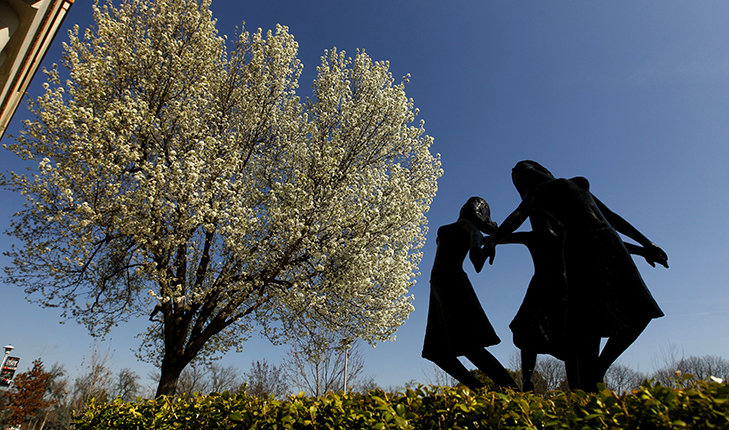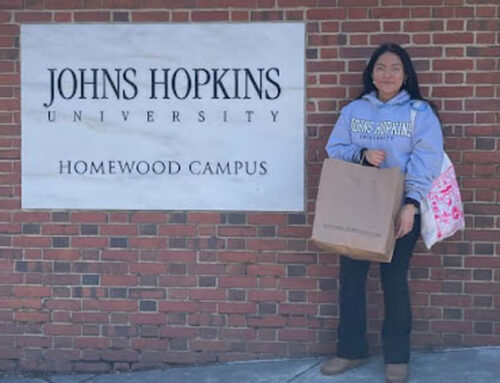The unprecedented changes our society experienced in recent weeks due to the spread of the coronavirus, COVID-19, could lead to stress or fear over the unknown. These changes, undoubtedly, also have an effect on the Fresno State campus community, including students who are now navigating the remainder of the spring semester with virtual classes using technology rather than learning in an in-person classroom setting.
While about 90% of staff are now working remotely and no students are physically attending classes on campus, the Student Health and Counseling Center at Fresno State remains open and counseling services continue to be offered to students. Students can call 559.278.2734 to schedule an appointment. They will be sent a Zoom link to connect with a counselor at their appointment time.
After hours, students can reach out to the National Suicide Prevention Hotline at 1.800.273.TALK (8255) or online chat or contact the Crisis Text Line at 741-741.
The Fresno County Department of Behavioral Health has established a COVID-19 Warm Line, 559.600-WARM (9276), to provide non-emergency emotional and coping support to community members.
“Many students spend more time at school than they do elsewhere, Fresno State is their community,” said Diana Karageozian, a clinical case manager at the Student Health and Counseling Center. “Students may feel disconnected from their educational family, and that can feel isolating. At Fresno State we are committed to fostering that sense of community, even now, by having counseling, advising and other professionals available remotely.”
FresnoStateNews.com reached out to experts from the Student Health and Counseling Center — counseling services director Malia Sherman, Karageozian and mental health educator Georgianna Negron-Long — for tips on how students and the community can reduce stress and anxiety during these challenging times.
6 tips to reduce stress and anxiety:
Routine. As much a possible, stick to a routine. Get dressed, put on shoes. Step outside. Take breaks. Schedule study time. Connect with others. Practice your daily self-care techniques. Sleep. Check out this self-care video (Negron-Long’s favorite) for more ideas.
Try something new. See this time as an opportunity to expand your wellness tool box. Try a new recipe, chopped-style, with whatever you have in your pantry. Try a new mental health app like Calm, Smiling Mind or Headspace. Sign up for a free online class or discover a new podcast. (Download Fresno State’s Student Guide to Mental Health and Well-being resources booklet for more information.)
Move. We are all doing a lot less of this, leading to pain and body aches. So move any way you can. Walk in place while on the phone or during a virtual class. Many gyms, like Crunch and Planet Fitness, are sharing and streaming free exercise videos. MyFitnessPal has great articles and videos like this 10 minute, no-equipment, full body workout. Or try the Seven app for seven-minute workouts using only a chair, a wall or your own body weight. Try the app challenge or compete with friends for extra encouragement and accountability.
Connect. Schedule a digital happy hour (during appropriate times, with age-appropriate beverages). Zoom, FaceTime, Google Duo, Skype, pick your platform and set a date. Cook, watch the same show, start a book discussion club or try a new exercise “together.” Go for a walk around the block while talking to a friend on the phone, two boosts of wellness in one.
Nourish. Eat healthy and nourishing foods. Resources abound on healthy eating but stick to reliable sources like My Plate and the My Plate app. Have questions about how to stay healthy, what foods are mood boosting or how to make a meal out of what you have in the pantry? Free nutritional counseling is still available for Fresno State students. Call 559.278.2734 to schedule a Zoom meeting with our registered dietician.
Pause. Breathe. Be. Create a mantra like Negron-Long’s “observe, don’t absorb,” Karageozian’s “be the energy you want to attract” or something that fits you. Write it on a post-it and put it on your bathroom mirror, next to your bed or wherever you spend time in your home. Try meditation or guided relaxation. Remember to practice self-compassion. All new things, whether positive or negative, take adjustment and are opportunities to grow and learn.
Follow @FSHealthCenter and @FSProjectHope on social media for more tips to support your well-being.
“It can be useful to talk through feelings and concerns or learn about a new resource and how to access it,” Karageozian said. “Reaching out is important, for the connection but also for practical reasons and help.”




